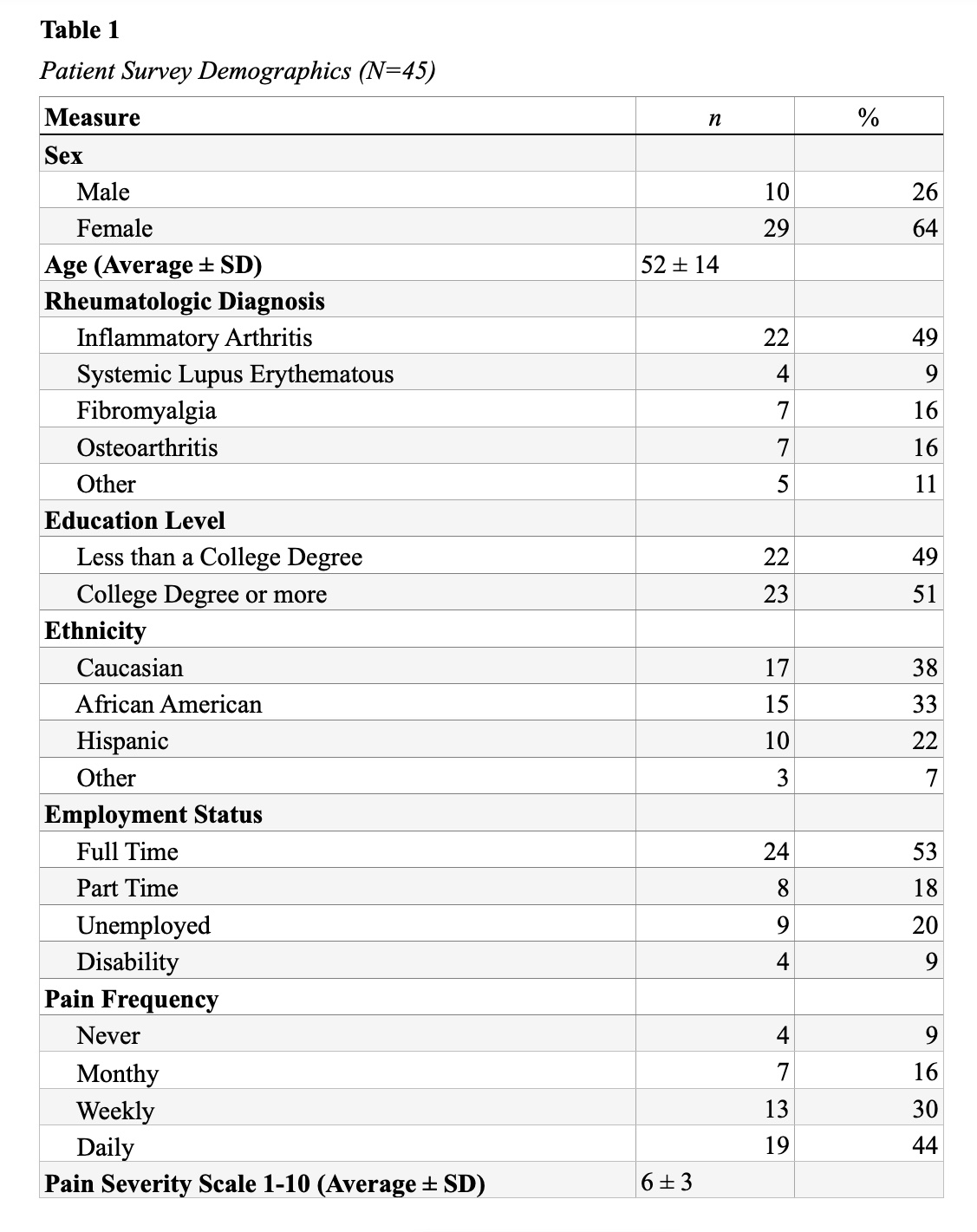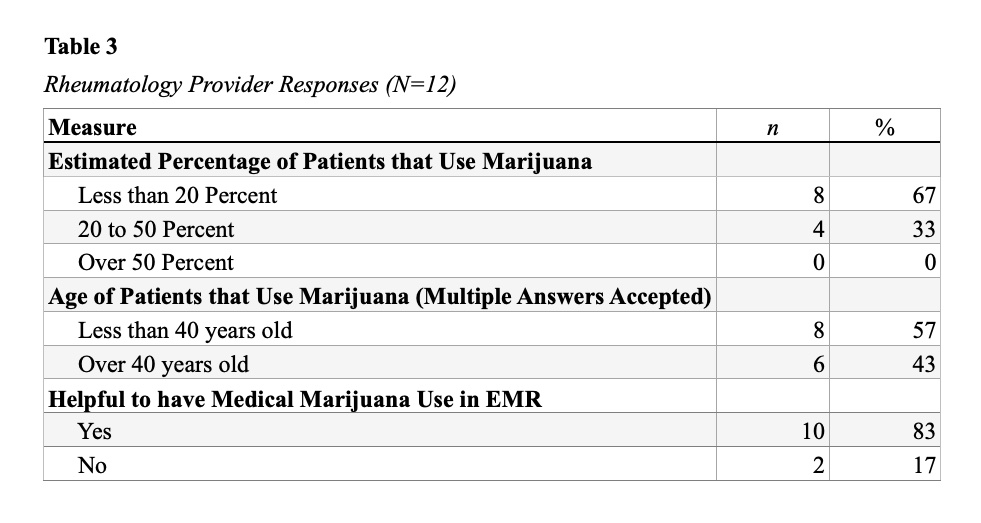Session Information
Date: Monday, November 8, 2021
Title: Patient Outcomes, Preferences, & Attitudes Poster III: Patient Preferences (1153–1169)
Session Type: Poster Session C
Session Time: 8:30AM-10:30AM
Background/Purpose: With the legalization of marijuana in many states, rheumatologists are having increased inquiries from patients regarding marijuana use in addition to their pain regimen. There are few studies to guide recommendations, and those that exist have mixed findings (Hauser, Journal of Pain 2017). Providers need to understand the prevalence of marijuana use among patients and their views regarding its use so that patients can be guided appropriately. This study assesses rheumatology patients’ and rheumatologists’ perspectives on marijuana use at an urban academic medical clinic.
Methods: Randomly selected patients from an academic rheumatology clinic were consented and enrolled to complete an IRB approved survey. An anonymous survey was given to rheumatology physicians in the same clinic to evaluate their perspectives on marijuana use. Quantitative statistics were used to analyze the data.
Results: Forty-five patients completed the survey. Their demographics and pain assessment are in Table 1. Of the survey responses, 57% of patient had tried marijuana, with 50% using it weekly. Marijuana use was greater in patients over the age of 40 (p=0.05) and in those with a pain score greater than 6 (65%, p=0.01). Patients with no college degree used marijuana more than those with at least a college degree (p=0.02). Of marijuana users, 81% of patients stated that marijuana decreased their pain; 65% reported a decrease in pain medication use. There was no association between marijuana use and ethnicity, diagnosis, or employment status. The majority, 57%, of non-marijuana users were interested in trying it. Table 2 includes patient responses to the survey.
The results of the rheumatologists’ survey are in Table 3. The physician survey found that 66.7% of the rheumatologists believed less than 20% of their patients were using marijuana and a majority felt that younger patients (less than 40) were more likely to use marijuana. Most rheumatologists felt that adding marijuana use to the electronic medical record would be helpful.
Conclusion: At an academic medical center, marijuana use was more common than providers expected and interestingly, more common in older patients. A majority of the patients who were not using marijuana, were interested in trying it. Given that marijuana use is increasing and may now even exceed tobacco use in many practices, it is important to ask about this in all patients. These results also highlight the need for high quality studies on the safety and effects of marijuana use in patients with rheumatic diseases.
 Table 1- Patient Survey Demographics
Table 1- Patient Survey Demographics
 Table 2- Marijuana Preferences Survey Results
Table 2- Marijuana Preferences Survey Results
 Table 3- Rheumatology Provider Responses
Table 3- Rheumatology Provider Responses
To cite this abstract in AMA style:
Fitzpatrick R, Shakoor N, Grant M, Khandelwal S. Marijuana Use Amongst Rheumatology Patients: It’s More Common Than Rheumatologists Believe [abstract]. Arthritis Rheumatol. 2021; 73 (suppl 9). https://acrabstracts.org/abstract/marijuana-use-amongst-rheumatology-patients-its-more-common-than-rheumatologists-believe/. Accessed .« Back to ACR Convergence 2021
ACR Meeting Abstracts - https://acrabstracts.org/abstract/marijuana-use-amongst-rheumatology-patients-its-more-common-than-rheumatologists-believe/
